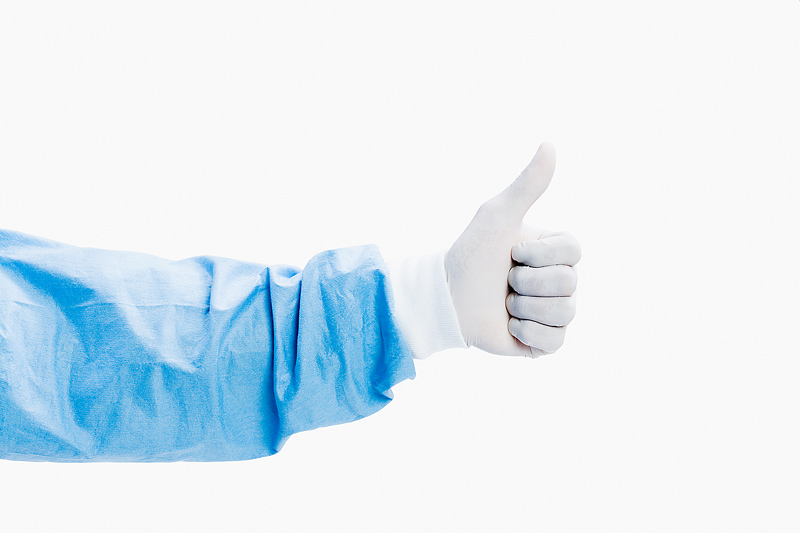
Here are some of the latest health and medical news developments, compiled by the editors of HealthDay:
HIV Prevention Pill Effective: FDA
The drug Truvada appears to be a safe and effective way to protect healthy people against HIV infection, according to a U.S. Food and Drug Administration review of clinical trial results.
The positive findings were posted Tuesday on the agency’s website in advance of an FDA advisory panel meeting scheduled for Thursday. The panel will discuss whether to recommend approval of Truvada for people who are at risk for contracting HIV through sexual intercourse, the Associated Press reported.
The daily pill could become the first drug approved to protect high-risk patients from infection with HIV, the virus that causes AIDS.
A three-year study found that daily doses of Truvada reduce the risk of HIV infection in healthy gay and bisexual men by 44 percent, when accompanied by condoms and counseling. Another study found that the drug cut HIV infection by 75 percent in heterosexual couples in which one partner had HIV and the other did not, the AP reported.
Despite the positive findings, the FDA scientists emphasized that Truvada must be taken daily to be effective.
At Thursday’s advisory panel meeting, there will be separate votes on whether the drug should be approved for: gay and bisexual men; men or women in relationships with HIV-positive partners; other people at risk for HIV infection through sexual activity, the AP reported.
The FDA typically follows the advice of its expert panels.
Truvada is already approved to manage HIV and some doctors currently prescribe the drug to protect healthy people against HIV infection. FDA approval would give drugmaker Gilead Sciences formal consent to market Truvada for the new use.
While Truvada appears effective in helping prevent HIV infection, some experts say that condoms are the best defense against HIV/AIDS and that a prevention pill is not a pharmaceutical equivalent, the AP reported.
—–
Amped is Newest Type of ‘Bath Salts’ Drugs
A new type of synthetic drug called Amped is being used by people in Virginia to get high, according to state officials.
It’s likely that people in other parts of the United States are also using the drug, which is touted as a ladybug attractant and falls into the street category of “bath salts,” according to ABC News.
There have been at least six reported cases of people ingesting the chemical compound in Eastern and Central Virginia, Virginia Poison Center Director Dr. Rutherfoord Rose said.
Bath salts — which are often disguised as incense, plant foods and cleaners — have amphetamine-like qualities and boost blood pressure and heart rate. Amped is the latest of these types of drugs to be sold on the Web and in convenience stores, ABC News reported.
“Despite laws that have outlawed certain chemicals within these drugs, chemists easily change a chemical or molecule within the compound to give it a similar or more potent property, and, because it is a different chemical entity, it is no longer illegal,” Rose said.
—–
Teen Drivers Much More Likely to Die When Carrying Teen Passengers: Study
Teen drivers are much more likely to die in a crash when they have teen passengers in the car, while that risk falls dramatically when they have an adult passenger, a new study says.
The analysis of U.S. government data on teen crashes from 2007 to 2010 revealed that a 16- or 17-year-old driver’s risk of death per mile driven increases 44 percent when there is one passenger younger than 21 and no older passengers, the Associated Press reported.
The risk doubles when carrying two passengers younger than 21 and quadruples when carrying three or more passengers younger than 21, according to the study by the Automobile Association of America’s Foundation for Traffic Safety.
On the other hand, a teen driver’s risk of dying in a crash is 62 percent lower when they have a passenger aged 35 or older, the AP reported.
—–
Abbott Fined $1.5 Billion Over Marketing of Seizure Drug
U.S. officials announced Monday that Abbott Laboratories has pleaded guilty and agreed to pay $1.5 billion over allegations that it marketed the anti-seizure drug Depakote for unapproved uses.
A strategy of systematically marketing the drug for purposes that were not approved by the Food and Drug Administration was carried out by top officials at Abbott, U.S. Attorney Timothy Heaphy said at a Justice Department news conference, the Associated Press reported.
Depakote is approved for treating bipolar disorder, but Abbott admitted to marketing the drugs for unapproved uses, including treatment of schizophrenia, autism and agitated dementia. The company engaged in this strategy from 1998 to at least 2006, according to Heaphy.
In a separate announcement, Virginia Attorney General Ken Cuccinelli said a $100 million settlement had been reached with Abbott over consumer claims in 45 states and the District of Columbia. The claims involved Abbott’s marketing of Depakote for unapproved uses.
—–
14 People in U.S. Sickened by Tainted Dog Food
At least 14 people across nine states have been sickened by dog food tainted by Salmonella, officials at the U.S. Centers for Disease Control and Prevention reported Monday.
“Multiple brands of dry pet food produced by Diamond Pet Foods at a single manufacturing facility in South Carolina have been linked to some of the human Salmonella infections,” the CDC said in a news release.
No deaths have been reported, the agency said, but five people have been hospitalized in connection with the recalled dog.
By state, the number of cases is as follows — Alabama (1), Connecticut (1), Michigan (1), Missouri (3), North Carolina (3), New Jersey (1), Ohio (2), Pennsylvania (1), and Virginia (1).
“Consumers should check their homes for recalled dog food products and discard them promptly,” the CDC said. “People who think they might have become ill after contact with dry pet food or with an animal that has eaten dry pet food should consult their health care providers.”
—–

